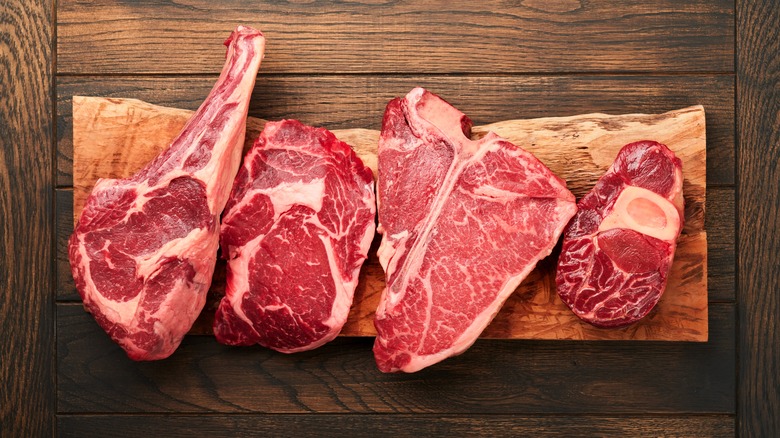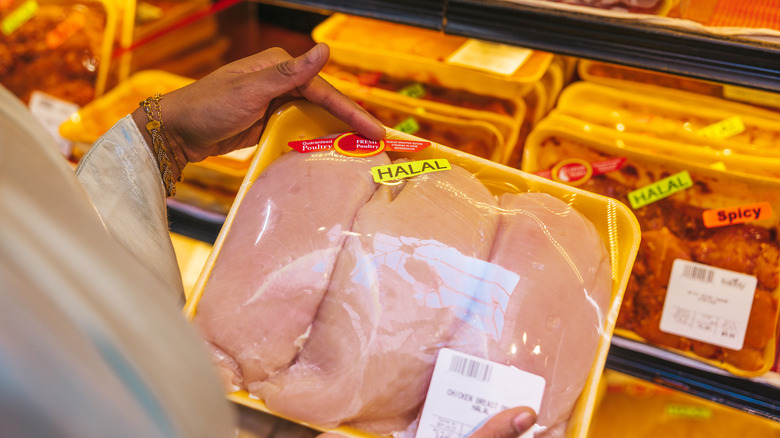When It Comes To Halal Steak, What Is Considered A 'Forbidden' Cut?
Non-Muslim folks may occasionally wonder what it means when restaurants declare themselves as halal certified (such as the ones we recommend in Los Angeles) or when packaged food comes with a credential on their labels. Halal, which means "lawful" in Arabic, describes foods that have been procured, processed, and traded in accordance with Islamic doctrine.
Halal requirements apply to both meat and non-meat food items but the former is subject to more stringent conditions. This is due to the Islamic belief that animals, especially livestock, are living creatures that are gifts from Allah and must be treated with compassion even when they are being slaughtered for food. Farm animals that have been allowed to graze as well as fish, seafood, and chickens are halal. Pigs, however, are the exception, with the Quran explicitly prohibiting the consumption of "the flesh of swine." Pork by-products are also decreed as haram, which means "forbidden under Islamic law."
In terms of cuts of meat, some food sites claim the hindquarters as haram, although there's no Quran passage that mentions specific animal parts as such; in fact, there are halal-certified meat companies that sell sirloin and round steaks. However, hindquarters are non-kosher, meaning they're forbidden under Judaism. Since Islam and Judaism base their respective dietary laws and codes of conduct on their respective religious scriptures, some people might have conflated the non-kosher status of hindquarters with haram food. The fact that both religions prohibit pork consumption is also a possible contributing factor to the confusion.
There is also a halal way of slaughtering animals
Rather than forbidding a specific cut of meat, halal standards look into the way an animal is slaughtered. Islamic law decrees that a ritual called dhabiha or zabihah must be performed, with the slaughterer positioning the animal to face east in the direction of Mecca and saying Allah's name as an invocation. The animal's throat is slit with a single stroke of a knife, cutting through the windpipe, carotid artery, and jugular vein to minimize suffering as much as possible. Stunning an animal before slaughter is prohibited; it should be alive, healthy, and conscious when killed. Since blood is haram, it must be drained out onto the ground. If a steak cut comes from a halal animal that wasn't slaughtered in a halal manner, it immediately becomes forbidden.
It's challenging to find halal meat in the U.S. Halal meat certification isn't standardized yet, with numerous organizations enforcing their own guidelines. The global certification body American Halal Foundation requires that slaughterers be practicing Muslims, yet a study published in the journal Plos One reports there are smaller halal-certifying organizations that allow slaughterers to be what is known as People of the Book, meaning believers of sacred scriptures, such as those of the Jewish and Christian faiths.
Given these inconsistencies, your best bet is to consult your local Muslim community if you're interested in trying halal meat. Ask them for their insights and recommendations on where you can find halal food.

